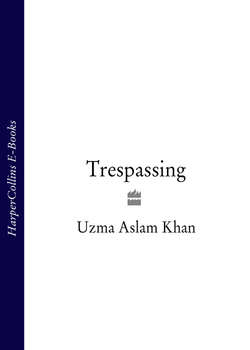Читать книгу Trespassing - Uzma Aslam Khan - Страница 17
7 The Order of Things
ОглавлениеMounting the staircase Daanish scratched his head, wondering what the question was. He threw back the door to his room.
The interior was unrecognizable. Once a warm, moody beige, the walls were now a clinical white. So were the built-in bookshelves that replaced the rickety ones on which his father had placed books for him to read.
The doctor had never presented a gift in wrapping paper with a card. He left it where he believed it belonged. This often meant the discovery wasn’t made for days, even weeks. It was in response to this ‘game’ that Daanish developed a keen memory that gradually evolved into an urgent need for systematic tidiness that Becky termed ‘anal retentive’. By memorizing the exact position of every object in the house, including every book, Daanish could identify a new one. If he could see it, even if, as a child, he was too short to reach it, his father let him have it.
Anu knew nothing of this. When the doctor presented her with gifts that popped up in plant pots, spice jars, lipstick tubes (a meter of resham so fine it fit in the finger-sized cylinder perfectly, so when Anu twirled it, out sprang the cloth, softly on her cheek, exactly as the doctor had envisioned), parandas and petticoats, Anu first gasped, then placed the surprise in a more suitable spot. She never strove to discover the impulse behind what she called her husband’s unsettled ways. But Daanish went along with his every fancy to the point where the father’s imagination became the son’s order. Anu, by changing the color of the walls and replacing the bookshelf, closet, floor lamp, even the bed, had changed for ever the order of things. Without knowing it, she’d eliminated the doctor’s presence from Daanish’s room. The one at college was more his own.
He dropped onto the new bed on which the lovely guipure bedcover Anu had made him years before was now a starched white sheet. When had she made the changes? Not after the death, that was barely four days ago. It would have been a breach of decorum. The family expected her to mourn, not pack or decorate. Then when? Why didn’t his father stop her if she’d done it during his lifetime?
His temples throbbed. The headache had lost its symmetry. He probed around his neck for knots.
Perhaps his father had never entered Daanish’s room while he was away. Perhaps it made him sad to be in it without him.
The new bed was no longer under the window, where he’d spent so many nights gazing up at the stars. It lay beside the new closet, and the landscape outside was mostly invisible. He saw only a patch of sky and an antenna from the roof of a house piercing it. The house was one of the four to have gone up in his absence. Barely ten inches from his window was the skeleton of yet another one.
He lay down, shoes still dangling on his feet. This mattress was soft; the old one had been firm. Every time he switched position, the springs bounced. Finally, he lay on his back, arms stretched to still the movement.
He could hear his aunts puttering downstairs, covering the floors with sheets, piling siparahs on side-tables. Soon pages would rustle and the recitation would commence. He didn’t want to be a part of it; it wasn’t a part of his father. He had to find a way of braving the ensuing weeks.
It was seven o’clock in the morning. Were his father here the alarm clock would sound the BBC chime. A crow perched on the windowsill. It was large and gray-hooded. Our crows are bigger than American crows, he thought, eyelids drooping. They’re the only things we have that are bigger.
